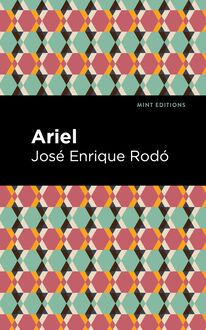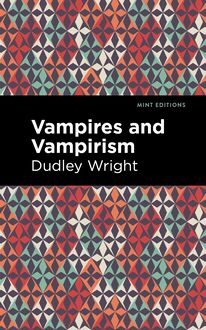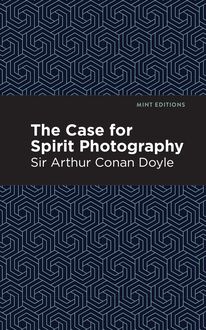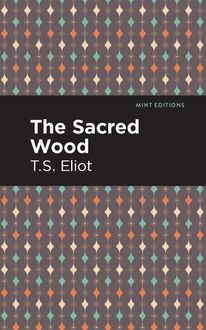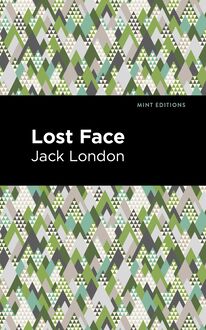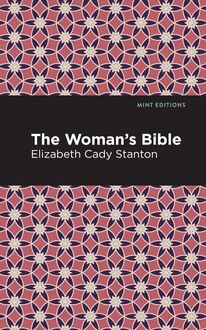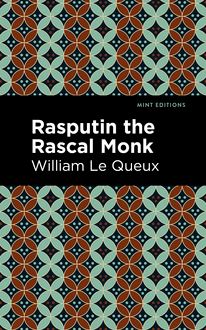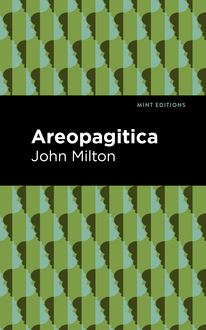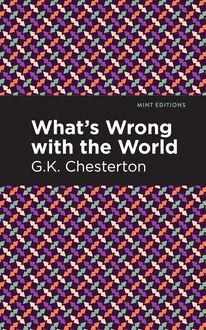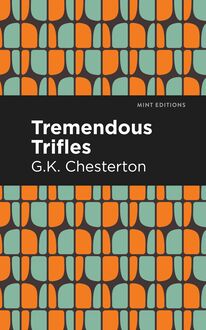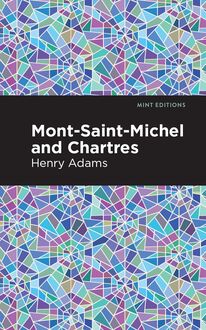-
 Univers
Univers
-
 Ebooks
Ebooks
-
 Livres audio
Livres audio
-
 Presse
Presse
-
 Podcasts
Podcasts
-
 BD
BD
-
 Documents
Documents
-
- Cours
- Révisions
- Ressources pédagogiques
- Sciences de l’éducation
- Manuels scolaires
- Langues
- Travaux de classe
- Annales de BEP
- Etudes supérieures
- Maternelle et primaire
- Fiches de lecture
- Orientation scolaire
- Méthodologie
- Corrigés de devoir
- Annales d’examens et concours
- Annales du bac
- Annales du brevet
- Rapports de stage
La lecture à portée de main

Vous pourrez modifier la taille du texte de cet ouvrage
Découvre YouScribe en t'inscrivant gratuitement
Je m'inscrisDécouvre YouScribe en t'inscrivant gratuitement
Je m'inscrisEn savoir plus
Vous pourrez modifier la taille du texte de cet ouvrage
En savoir plus

Description
Intentions consists of multiple essays in which Wilde combats the popular argument that art must adhere to a moral standard and serve a benevolent purpose. It’s a direct contrast to longstanding tradition in contemporary literature.
Oscar Wilde delivers four irreverent essays that criticize the norm and celebrate the unexpected. Intentions features four of his works: "The Decay of Lying," "Pen, Pencil and Poison," "The Critic as Artist" and "The Truth of Masks." They highlight different areas of contention within the artist community. This includes the role of critics in the creative process and the identification of their own artistic merit. Wilde also celebrates the controversial figure, Thomas Griffiths Wainewright, a brilliant painter and renown serial killer.
Oscar Wilde presents bold and unwavering thoughts about art and its place in society. He provides provocative examples that encourage further inspection. It’s a compelling argument with similar themes appearing in his plays and sole novel, The Picture of Dorian Gray.
With an eye-catching new cover, and professionally typeset manuscript, this edition of Intentions is both modern and readable.
Sujets
Informations
| Publié par | Mint Editions |
| Date de parution | 09 février 2021 |
| Nombre de lectures | 0 |
| EAN13 | 9781513276304 |
| Langue | English |
Informations légales : prix de location à la page 0,0450€. Cette information est donnée uniquement à titre indicatif conformément à la législation en vigueur.
Extrait
Intentions
Oscar Wilde
Intentions was first published in 1891.
This edition published by Mint Editions 2020.
ISBN 9781513271309 | E-ISBN 9781513276304
Published by Mint Editions ®
minteditionbooks .com
Publishing Director: Jennifer Newens
Design & Production: Rachel Lopez Metzger
Project Manager: Micaela Clark
Typesetting: Westchester Publishing Services
C ONTENTS T HE D ECAY OF L YING P EN , P ENCIL , AND P OISON T HE C RITIC AS A RTIST T HE T RUTH OF M ASKS
T HE D ECAY OF L YING
An Observation
A D IALOGUE . Persons : Cyril and Vivian . Scene : the Library of a country house in Nottinghamshire .
C YRIL ( coming in through the open window from the terrace ): My dear Vivian, don’t coop yourself up all day in the library. It is a perfectly lovely afternoon. The air is exquisite. There is a mist upon the woods, like the purple bloom upon a plum. Let us go and lie on the grass and smoke cigarettes and enjoy Nature.
V IVIAN : Enjoy Nature! I am glad to say that I have entirely lost that faculty. People tell us that Art makes us love Nature more than we loved her before; that it reveals her secrets to us; and that after a careful study of Corot and Constable we see things in her that had escaped our observation. My own experience is that the more we study Art, the less we care for Nature. What Art really reveals to us is Nature’s lack of design, her curious crudities, her extraordinary monotony, her absolutely unfinished condition. Nature has good intentions, of course, but, as Aristotle once said, she cannot carry them out. When I look at a landscape I cannot help seeing all its defects. It is fortunate for us, however, that Nature is so imperfect, as otherwise we should have no art at all. Art is our spirited protest, our gallant attempt to teach Nature her proper place. As for the infinite variety of Nature, that is a pure myth. It is not to be found in Nature herself. It resides in the imagination, or fancy, or cultivated blindness of the man who looks at her.
C YRIL : Well, you need not look at the landscape. You can lie on the grass and smoke and talk.
V IVIAN : But Nature is so uncomfortable. Grass is hard and lumpy and damp, and full of dreadful black insects. Why, even Morris’s poorest workman could make you a more comfortable seat than the whole of Nature can. Nature pales before the furniture of ‘the street which from Oxford has borrowed its name,’ as the poet you love so much once vilely phrased it. I don’t complain. If Nature had been comfortable, mankind would never have invented architecture, and I prefer houses to the open air. In a house we all feel of the proper proportions. Everything is subordinated to us, fashioned for our use and our pleasure. Egotism itself, which is so necessary to a proper sense of human dignity, is entirely the result of indoor life. Out of doors one becomes abstract and impersonal. One’s individuality absolutely leaves one. And then Nature is so indifferent, so unappreciative. Whenever I am walking in the park here, I always feel that I am no more to her than the cattle that browse on the slope, or the burdock that blooms in the ditch. Nothing is more evident than that Nature hates Mind. Thinking is the most unhealthy thing in the world, and people die of it just as they die of any other disease. Fortunately, in England at any rate, thought is not catching. Our splendid physique as a people is entirely due to our national stupidity. I only hope we shall be able to keep this great historic bulwark of our happiness for many years to come; but I am afraid that we are beginning to be over-educated; at least everybody who is incapable of learning has taken to teaching—that is really what our enthusiasm for education has come to. In the meantime, you had better go back to your wearisome uncomfortable Nature, and leave me to correct my proofs.
C YRIL : Writing an article! That is not very consistent after what you have just said.
V IVIAN : Who wants to be consistent? The dullard and the doctrinaire, the tedious people who carry out their principles to the bitter end of action, to the reductio ad absurdum of practice. Not I. Like Emerson, I write over the door of my library the word ‘Whim.’ Besides, my article is really a most salutary and valuable warning. If it is attended to, there may be a new Renaissance of Art.
C YRIL : What is the subject?
V IVIAN : I intend to call it ‘The Decay of Lying: A Protest.’
C YRIL : Lying! I should have thought that our politicians kept up that habit.
V IVIAN : I assure you that they do not. They never rise beyond the level of misrepresentation, and actually condescend to prove, to discuss, to argue. How different from the temper of the true liar, with his frank, fearless statements, his superb irresponsibility, his healthy, natural disdain of proof of any kind! After all, what is a fine lie? Simply that which is its own evidence. If a man is sufficiently unimaginative to produce evidence in support of a lie, he might just as well speak the truth at once. No, the politicians won’t do. Something may, perhaps, be urged on behalf of the Bar. The mantle of the Sophist has fallen on its members. Their feigned ardours and unreal rhetoric are delightful. They can make the worse appear the better cause, as though they were fresh from Leontine schools, and have been known to wrest from reluctant juries triumphant verdicts of acquittal for their clients, even when those clients, as often happens, were clearly and unmistakeably innocent. But they are briefed by the prosaic, and are not ashamed to appeal to precedent. In spite of their endeavours, the truth will out. Newspapers, even, have degenerated. They may now be absolutely relied upon. One feels it as one wades through their columns. It is always the unreadable that occurs. I am afraid that there is not much to be said in favour of either the lawyer or the journalist. Besides, what I am pleading for is Lying in art. Shall I read you what I have written? It might do you a great deal of good.
C YRIL : Certainly, if you give me a cigarette. Thanks. By the way, what magazine do you intend it for?
V IVIAN : For the Retrospective Review . I think I told you that the elect had revived it.
C YRIL : Whom do you mean by ‘the elect’?
V IVIAN : Oh, The Tired Hedonists, of course. It is a club to which I belong. We are supposed to wear faded roses in our button-holes when we meet, and to have a sort of cult for Domitian. I am afraid you are not eligible. You are too fond of simple pleasures.
C YRIL : I should be black-balled on the ground of animal spirits, I suppose?
V IVIAN : Probably. Besides, you are a little too old. We don’t admit anybody who is of the usual age.
C YRIL : Well, I should fancy you are all a good deal bored with each other.
V IVIAN : We are. This is one of the objects of the club. Now, if you promise not to interrupt too often, I will read you my article.
C YRIL : You will find me all attention.
V IVIAN ( reading in a very clear , musical voice ): T HE D ECAY OF L YING : A P ROTEST .—One of the chief causes that can be assigned for the curiously commonplace character of most of the literature of our age is undoubtedly the decay of Lying as an art, a science, and a social pleasure. The ancient historians gave us delightful fiction in the form of fact; the modern novelist presents us with dull facts under the guise of fiction. The Blue-Book is rapidly becoming his ideal both for method and manner. He has his tedious document humain , his miserable little coin de la création , into which he peers with his microscope. He is to be found at the Librairie Nationale , or at the British Museum, shamelessly reading up his subject. He has not even the courage of other people’s ideas, but insists on going directly to life for everything, and ultimately, between encyclop æ dias and personal experience, he comes to the ground, having drawn his types from the family circle or from the weekly washerwoman, and having acquired an amount of useful information from which never, even in his most meditative moments, can he thoroughly free himself.
‘The lose that results to literature in general from this false ideal of our time can hardly be overestimated. People have a careless way of talking about a “born liar,” just as they talk about a “born poet.” But in both cases they are wrong. Lying and poetry are arts—arts, as Pinto saw, not unconnected with each other—and they require the most careful study, the most disinterested devotion. Indeed, they have their technique, just as the more material arts of painting and sculpture have, their subtle secrets of form and colour, their craft-mysteries, their deliberate artistic methods. As one knows the poet by his fine music, so one can recognise the liar by his rich rhythmic utterance, and in neither case will the casual inspiration of the moment suffice. Here, as elsewhere, practice must, precede perfection. But in modern days while the fashion of writing poetry has become far too common, and should, if possible, be discouraged, the fashion of lying has almost fallen into disrepute. Many a young man starts in life with a natural gift for exaggeration which, if nurtured in congenial and sympathetic surroundings, or by the imitation of the best models, might grow into something really great and wonderful. But, as a rule, he comes to nothing. He either falls into careless habits of accuracy—’
C YRIL : My dear fellow!
V IVIAN : Please don’t interrupt in the middle of a sentence. ‘He either falls into careless habits of accuracy, or takes to frequenting the society of the aged and the well-informed. Both things are equally fatal to his imagination, as indeed they would be fatal to the imagination of anybody, and in a short time he develops a morbid and unhealthy faculty of truth-telling, begins to verify all statements made in his presence, has no hesitation in contradicting people who are much yo
Attention
En entrant sur cette page, vous certifiez :
- 1. avoir atteint l'âge légal de majorité de votre pays de résidence.
- 2. avoir pris connaissance du caractère érotique de ce document.
- 3. vous engager à ne pas diffuser le contenu de ce document.
- 4. consulter ce document à titre purement personnel en n'impliquant aucune société ou organisme d'État.
- 5. vous engager à mettre en oeuvre tous les moyens existants à ce jour pour empêcher n'importe quel mineur d'accéder à ce document.
- 6. déclarer n'être choqué(e) par aucun type de sexualité.
YouScribe ne pourra pas être tenu responsable en cas de non-respect des points précédemment énumérés. Bonne lecture !
-
 Univers
Univers
-
 Ebooks
Ebooks
-
 Livres audio
Livres audio
-
 Presse
Presse
-
 Podcasts
Podcasts
-
 BD
BD
-
 Documents
Documents
-
Jeunesse
-
Littérature
-
Ressources professionnelles
-
Santé et bien-être
-
Savoirs
-
Education
-
Loisirs et hobbies
-
Art, musique et cinéma
-
Actualité et débat de société
-
Jeunesse
-
Littérature
-
Ressources professionnelles
-
Santé et bien-être
-
Savoirs
-
Education
-
Loisirs et hobbies
-
Art, musique et cinéma
-
Actualité et débat de société
-
Actualités
-
Lifestyle
-
Presse jeunesse
-
Presse professionnelle
-
Pratique
-
Presse sportive
-
Presse internationale
-
Culture & Médias
-
Action et Aventures
-
Science-fiction et Fantasy
-
Société
-
Jeunesse
-
Littérature
-
Ressources professionnelles
-
Santé et bien-être
-
Savoirs
-
Education
-
Loisirs et hobbies
-
Art, musique et cinéma
-
Actualité et débat de société
- Cours
- Révisions
- Ressources pédagogiques
- Sciences de l’éducation
- Manuels scolaires
- Langues
- Travaux de classe
- Annales de BEP
- Etudes supérieures
- Maternelle et primaire
- Fiches de lecture
- Orientation scolaire
- Méthodologie
- Corrigés de devoir
- Annales d’examens et concours
- Annales du bac
- Annales du brevet
- Rapports de stage
